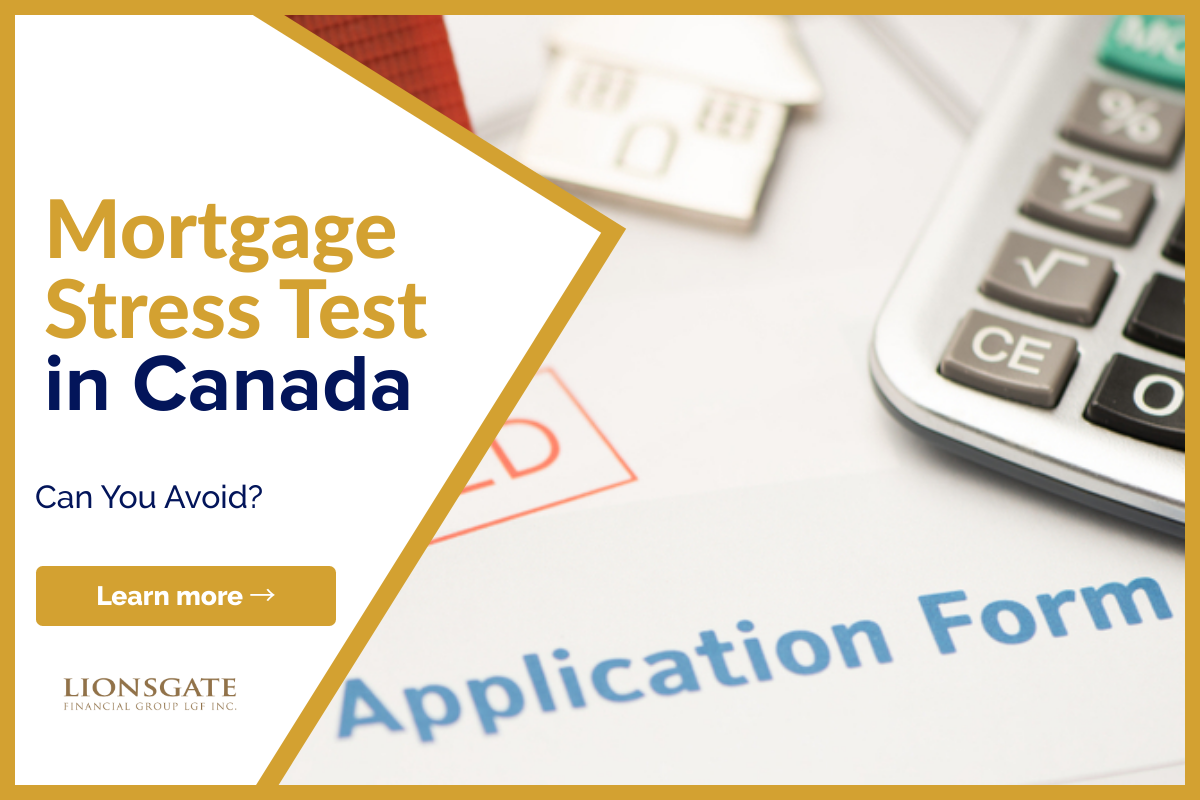During the early days of the mortgage business, brokers would require a lot of paperwork…

Mortgage Stress Test – Can You Avoid?
Now you can listen to our blog, “Mortgage Stress Test – Can You Avoid?” while on the go.
Every day, we prepare for the worst. We bring umbrellas when it’s raining, take Gravols before a long journey. Or purchase travel insurance when traveling internationally. What makes you think that getting a mortgage is any different?
A mortgage stress test is one approach to prepare for the worst-case scenario. And it’s also required by law in Canada.
What is The Mortgage Stress Test in Canada?
All Canadian homebuyers applying for a high-ratio mortgage have been subjected to a mortgage stress test. Since 2018, the exam applies to all mortgages now. The mortgage stress test requires banks to verify that a borrower can continue to make payments at a higher rate than they currently pay.
This is how it goes. You’ll be given a contractual rate when you apply for a mortgage (including shared mortgages) – hopefully as low as feasible. Your bank, on the other hand, must verify that you will be able to repay your mortgage even if your interest rate rises during the period of your loan.

This means that your income must be sufficient. And your present debt must be manageable, in order to pay off your mortgage at a higher rate. Generally, you will be able to borrow a smaller amount of money as a result of this.
How does the mortgage stress test work?
A stress test is a financial term for planning for the worst-case situation. It entails simulating a negative scenario before making an investment. Starting a retirement fund with an RRSP is a good example: While a 5-percent annual return may seem realistic, what if your assets only return 4-percent each year? Will you be able to retire at the age of 60? If it doesn’t, the RRSP will fail the stress test. This data can help you make better investments and avoid costly blunders.
A stress test for a mortgage is a method of calculating how much you can afford (and under what circumstances). Could you continue to make mortgage payments if your income was decreased or you lost your job? What happens if interest rates rise, or if you need to refinance your house?
This type of rainy-day preparation is critical for several reasons. For starters, interest rates change. Home prices fluctuate as well. According to the Canadian Real Estate Association, the average home price in Canada in April 2021 was over $695,000, up 41.9 percent over the previous year. Knowing you can still pay your mortgage if interest rates rise is crucial, and it could influence the type of property you buy.
Why is a mortgage stress test necessary?
The stress test was created to solve Canada’s household debt problem and prevent borrowers from further indebting themselves by taking out a mortgage they couldn’t afford. The OSFI began requiring an obligatory stress test for potential house buyers borrowing from federally regulated institutions and those switching lenders at the end of their mortgage term from the beginning of 2018.
The OSFI was fulfilling its watchdog function by enacting the stress test amendment, according to industry professionals recently interviewed by Mortgage Broker News, but they do not expect the new rule to have a significant influence on the general housing market or current levels of demand.
Is it possible for homebuyers to bypass the mortgage stress test?
According to the loan comparison portal Loans Canada, while Canadian banks are required by OFSI to enforce the mortgage stress test, provincially authorized credit unions and alternative lenders are not. This can allow would-be buyers to avoid the process.
Even customers with bad credit and a high debt-to-income ratio can get a mortgage quickly with some alternative lenders. The disadvantages, on the other hand, include higher interest rates, lower borrowing limits, and the possibility of hidden fees.
The organization also recommends homeowners exercise extreme caution if they decide to go this route.
“Be sure to thoroughly evaluate the lender before deciding to cooperate with one,” the firm said on its website. “While you may want to avoid the mortgage stress test in order to achieve mortgage approval, you also don’t want to place yourself in a precarious position that will make it impossible to pay your mortgage.” Avoid the temptation to take on too much debt. Instead, work with a reputable lender who is looking out for your best interests.”
The Bottom Line
It’s critical to be informed about changes to Canadian mortgage legislation because they might have a direct influence on your loan. Beyond that, earning more money and saving more for a down payment are the greatest ways to boost the amount you can borrow.
When stress testing a mortgage before you buy, it’s also a good idea to ask for assistance from a mortgage broker. They can keep you informed about changes in lending policies that may affect how much you can borrow, in addition to assisting you in determining your optimal debt service ratios and maximum interest rate.
At Lionsgate, we specialize in helping people obtain funding private mortgages for land purchases as well as for other real estate transactions. If you are looking to buy land in Canada, get a mortgage or apply for a loan, leave us a message and we will try to connect you with local realtors and sourcing for financing.
If you found this article helpful, please share it with someone you care about. Also, visit our blog to read similar articles on mortgages.




